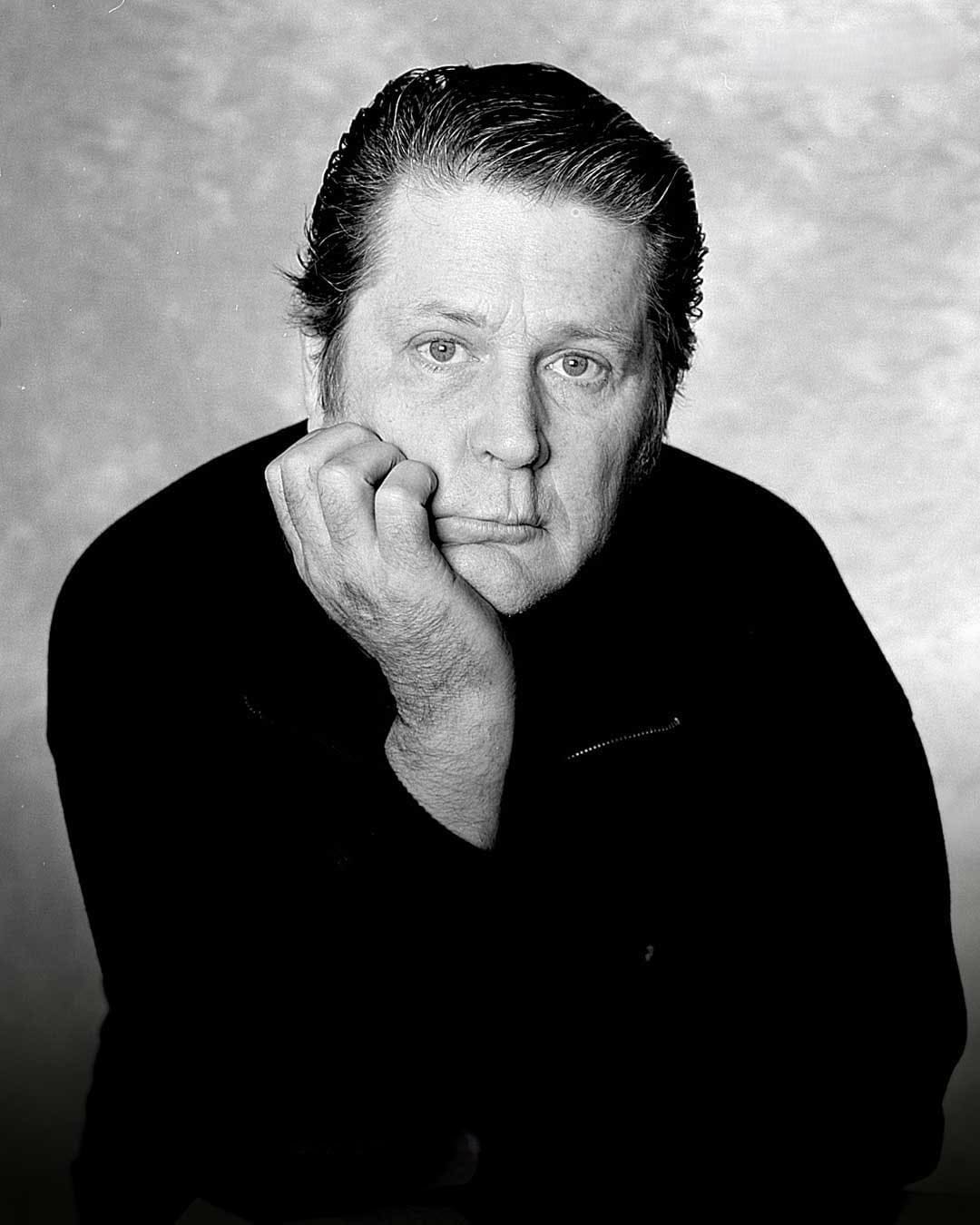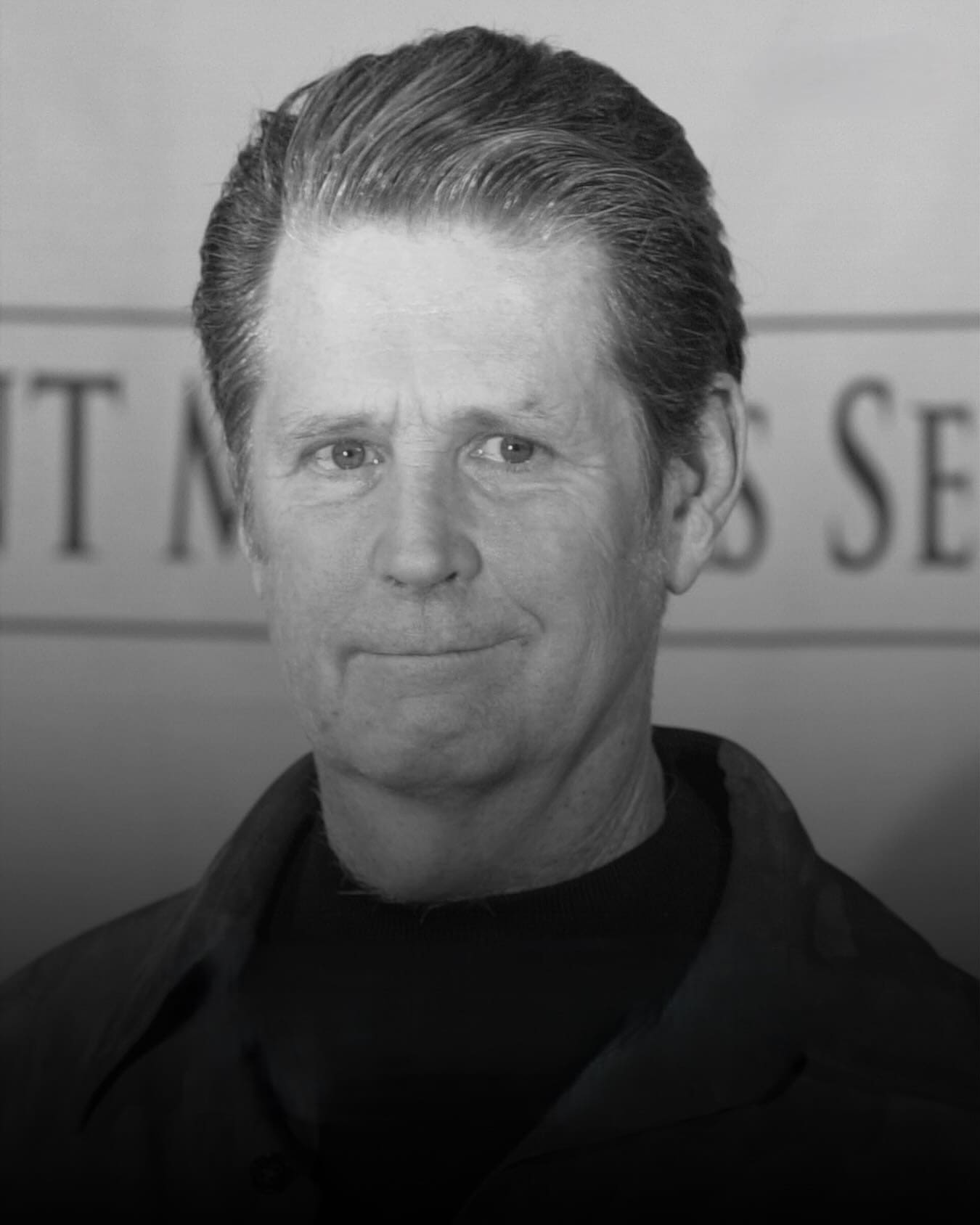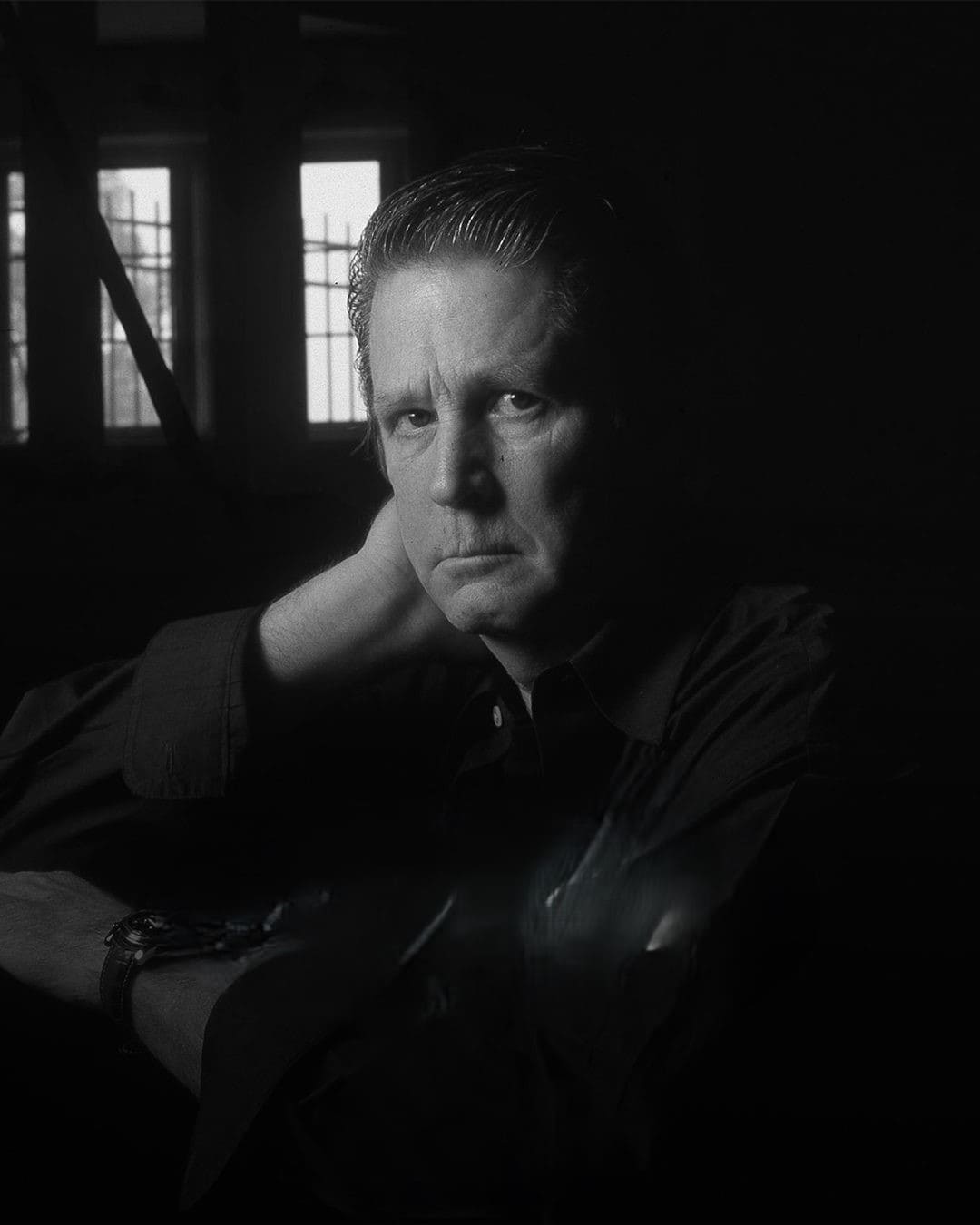Brian Wilson is more than just a musical genius—he’s a figure wrapped in enigma, pain, brilliance, and resilience. As the creative force behind The Beach Boys, Wilson’s life journey has been anything but smooth. Behind the surf tunes and California dreams lie personal struggles, mental health battles, manipulative influences, and artistic sacrifices that the world rarely talks about. These dark secrets reveal a side of Brian Wilson few truly understand.
Let’s dive deep into the 20 darkest secrets that shaped Brian Wilson’s mysterious life.
1. He Suffered From Auditory Hallucinations for Decades

From the 1960s onward, Brian Wilson struggled with intense auditory hallucinations—hearing voices that weren’t there. These voices often tormented him, issuing insults or issuing confusing commands. Many fans attributed his erratic behavior to drugs, but Wilson himself has confirmed that the voices were real to him—a manifestation of his undiagnosed schizoaffective disorder. These hallucinations severely hindered his creativity and day-to-day functionality. He once revealed that the voices said things like “You’re gonna die” or “You’re not good enough,” which tragically overshadowed his musical brilliance.
2. His Father Was Physically and Emotionally Abusive
Murry Wilson, Brian’s father and the Beach Boys’ early manager, was known for his aggressive and controlling behavior. He would slap, berate, and belittle Brian, even as a child. The trauma ran so deep that it manifested in Brian’s adult relationships and contributed to his lifelong battle with self-worth. Despite his musical success, Brian always felt he was “never good enough” in his father’s eyes. Murry also sold the rights to the Beach Boys’ songs behind Brian’s back—an act that devastated him emotionally and financially.
3. He Was Once Held Under Psychological Control by a Doctor
In the 1980s, Brian Wilson fell under the manipulative care of Dr. Eugene Landy, a controversial psychologist who used extreme and unethical methods. Landy gained legal control over Wilson’s life, finances, medication, and even personal relationships. Landy charged exorbitant fees while isolating Wilson from friends and family. He also co-wrote music credits with Wilson, allegedly taking advantage of Brian’s fragile mental state. It took legal action from family members to finally sever Landy’s hold in 1991.
4. Brian Was Isolated from the World for Years
Due to both his mental health struggles and Landy’s controlling influence, Wilson lived in near isolation for long periods. He would stay confined in his bedroom, barely interacting with others. Friends recall how he’d spend days in bed, avoiding sunlight and social interaction. This self-imposed exile led to intense loneliness and further deteriorated his mental state. It wasn’t until his second wife, Melinda Ledbetter, intervened that he began reintegrating into the world again.
5. He Missed Out on Performing with The Beach Boys During Their Peak
Ironically, at the height of The Beach Boys’ success, Brian Wilson stopped touring. In 1964, citing stress and mental exhaustion, he stepped away from live performances. This move shocked fans and caused confusion within the band. While he focused on studio production (leading to masterpieces like Pet Sounds), his absence from live shows created a disconnect between him and his fans, further isolating him emotionally and professionally.
6. He Experimented Heavily with Psychedelics, Worsening His Condition
Wilson’s early exposure to LSD and other hallucinogens had a long-lasting negative impact. While some claim psychedelics inspired his experimental sounds, Brian has openly said they exacerbated his hallucinations and paranoia. In particular, a “bad trip” in the late 1960s triggered a psychological downward spiral that took years to recover from. What started as artistic exploration quickly devolved into a mental health crisis with long-term consequences.
7. The “Smile” Album Was Abandoned Due to His Breakdown
“Smile” was intended to be Brian Wilson’s magnum opus—a bold, genre-defying project. But the pressure to outdo Pet Sounds, combined with his worsening mental state, led to its abandonment in 1967. Wilson became convinced the project was cursed, even saying the music caused strange occurrences in his home. The album was shelved for decades, leaving fans and critics mystified. Its incomplete status became a symbol of Wilson’s fragile genius.
8. He Was Financially Exploited Multiple Times

Wilson’s vulnerability made him a target for financial manipulation. Beyond his father and Dr. Landy, other handlers and advisors took advantage of his fame and fragile mental health. Over the years, he lost millions through bad contracts, dubious royalties, and outright fraud. Even when he attempted to take back control, legal entanglements often left him powerless. It’s only in recent decades that he’s regained full control of his assets and musical rights.
9. His Relationship with His Brothers Was Complicated and Painful
Though Brian was extremely close to Dennis and Carl Wilson, their relationships were filled with tension, substance abuse, and unresolved trauma. Dennis, in particular, spiraled into self-destruction, eventually drowning in 1983. Brian’s grief was overwhelming, and he retreated further from the public eye. Carl’s later death from lung cancer in 1998 was another devastating blow. These tragedies deepened the shadows in Brian’s already complex emotional world.
10. He Struggled with Food Addiction and Weight Gain
During his darkest periods, Brian developed compulsive eating habits, using food as a coping mechanism. At one point, he ballooned to over 300 pounds. Friends and family were alarmed by his appearance and health decline. Food became both comfort and punishment, mirroring the internal chaos he felt. Eventually, with support and care, he adopted a healthier lifestyle, but the battle with emotional eating was long and difficult.
11. His First Marriage Ended in Betrayal and Estrangement
Brian’s first marriage to Marilyn Rovell deteriorated due to his mental health issues, infidelity, and substance abuse. The couple had two daughters, but family life quickly unraveled. Marilyn, once supportive, became estranged after years of emotional turmoil and neglect. The split left lasting scars and further distanced Brian from his children for years. It was a personal tragedy that mirrored the disintegration of his inner life.
12. He Was Diagnosed with Schizoaffective Disorder Late in Life
It wasn’t until decades into his career that Brian Wilson was diagnosed with schizoaffective disorder, a condition combining symptoms of schizophrenia and mood disorders. By the time of diagnosis, he had endured years of confusion, misdiagnosis, and mistreatment. The proper diagnosis allowed for more targeted medication and therapy, which helped stabilize his condition. Still, the delayed treatment had already taken a heavy toll on his life and legacy.
13. His Talent Was Often Overshadowed by His Struggles
Despite being one of the greatest American songwriters, Brian Wilson’s public image has often focused more on his personal demons than his achievements. This distortion has frustrated both fans and historians. Albums like Smile, Pet Sounds, and Surf’s Up revolutionized pop music, yet Brian is still often viewed as a tragic figure instead of the genius he is. This misrepresentation adds to the bittersweet nature of his legacy.
14. He Was Once Homeless and Wandering the Streets
During the lowest point of his life in the 1980s, Brian Wilson was seen sleeping in parks and wandering barefoot in LA. Friends would report sightings of him looking disoriented and unwell. These periods of homelessness stemmed from his refusal to take medication and the psychological trauma left untreated. For a man who once sold out stadiums, this descent was a chilling reminder of how fragile fame can be.
15. He Was Afraid of His Own Music at Times
Brian confessed that he sometimes felt his own music was “haunted”. During the creation of Smile, he reported that certain melodies triggered fear, paranoia, or visions. He once said he believed a song “Fire” from the Smile sessions actually caused fires in California. This irrational connection led him to shelve the entire album, as he felt the music held a power he couldn’t control. It was a chilling example of how deeply his mental health influenced his creative process.
16. He Lived Through a Decade-Long Creative Silence

From the mid-70s to late 80s, Brian produced very little original work, partly due to mental health struggles and partly because of Landy’s control. During this “silent” period, many believed his creativity was gone forever. It wasn’t until the 1990s that he began releasing new solo material. The silence was deafening for fans who once saw him as the Mozart of modern music.
17. His Children Had to Reconcile With His Abandonment
Brian’s children, especially Carnie and Wendy Wilson, have spoken openly about the emotional distance they felt growing up. While they acknowledged his struggles, they also felt the pain of having a father who was physically present but emotionally absent. It took years of therapy, family discussions, and healing for them to rebuild their bond. Today, they support his legacy but don’t shy away from discussing their trauma.
18. The Brian Wilson Movie Omitted Many Truths
The 2014 film Love & Mercy was praised for its portrayal of Wilson’s life, but critics and insiders say it left out major truths. Some key abuses by Dr. Landy were glossed over, and the depth of Brian’s mental health issues was somewhat sanitized. While the film captured his essence, it didn’t fully convey the darkest corners of his story—something even fans found disappointing.
19. He Still Battles Paranoia and Anxiety Today
Despite his recovery and return to music, Brian Wilson continues to deal with anxiety and occasional paranoia. In interviews, he admits that some days are harder than others. Crowds overwhelm him, and he’s often seen wearing dark sunglasses indoors to shield himself emotionally. These ongoing struggles are a reminder that mental illness isn’t “cured”—it’s managed. And Wilson, despite his achievements, remains a deeply sensitive soul.
20. His Life Is a Reminder That Genius Often Comes with a Cost

The ultimate dark secret? Brian Wilson’s brilliance came at an unfathomable personal cost. For every masterpiece he created, he paid in emotional isolation, trauma, and mental torment. His story challenges the romanticism of the “tortured artist,” reminding us that talent doesn’t shield one from suffering—it often intensifies it. And yet, through all the darkness, Wilson continues to sing, compose, and inspire millions.
Final Thoughts
Brian Wilson’s life is a stunning tapestry of brilliance and pain. These 20 dark secrets don’t just uncover scandals—they shed light on the depth of Brian Wilson’s humanity. He’s not just a music legend. He’s a survivor.